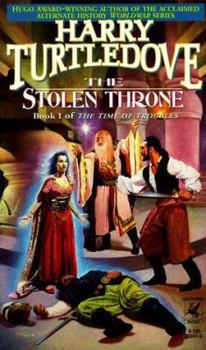The Stolen Throne
(Part of the The Videssos Books (#8) Series and Time of Troubles (#1) Series)
THE BORDER WARS An uneasy peace had prevailed these last few years between the Empire of Videssos and rival Makuran. But now Makuran's King of Kings alerted his border holdings--even the small... This description may be from another edition of this product.
Format:Mass Market Paperback
Language:English
ISBN:0345380479
ISBN13:9780345380470
Release Date:May 1995
Publisher:Del Rey Books
Length:356 Pages
Weight:0.42 lbs.
Dimensions:1.0" x 4.2" x 6.9"














